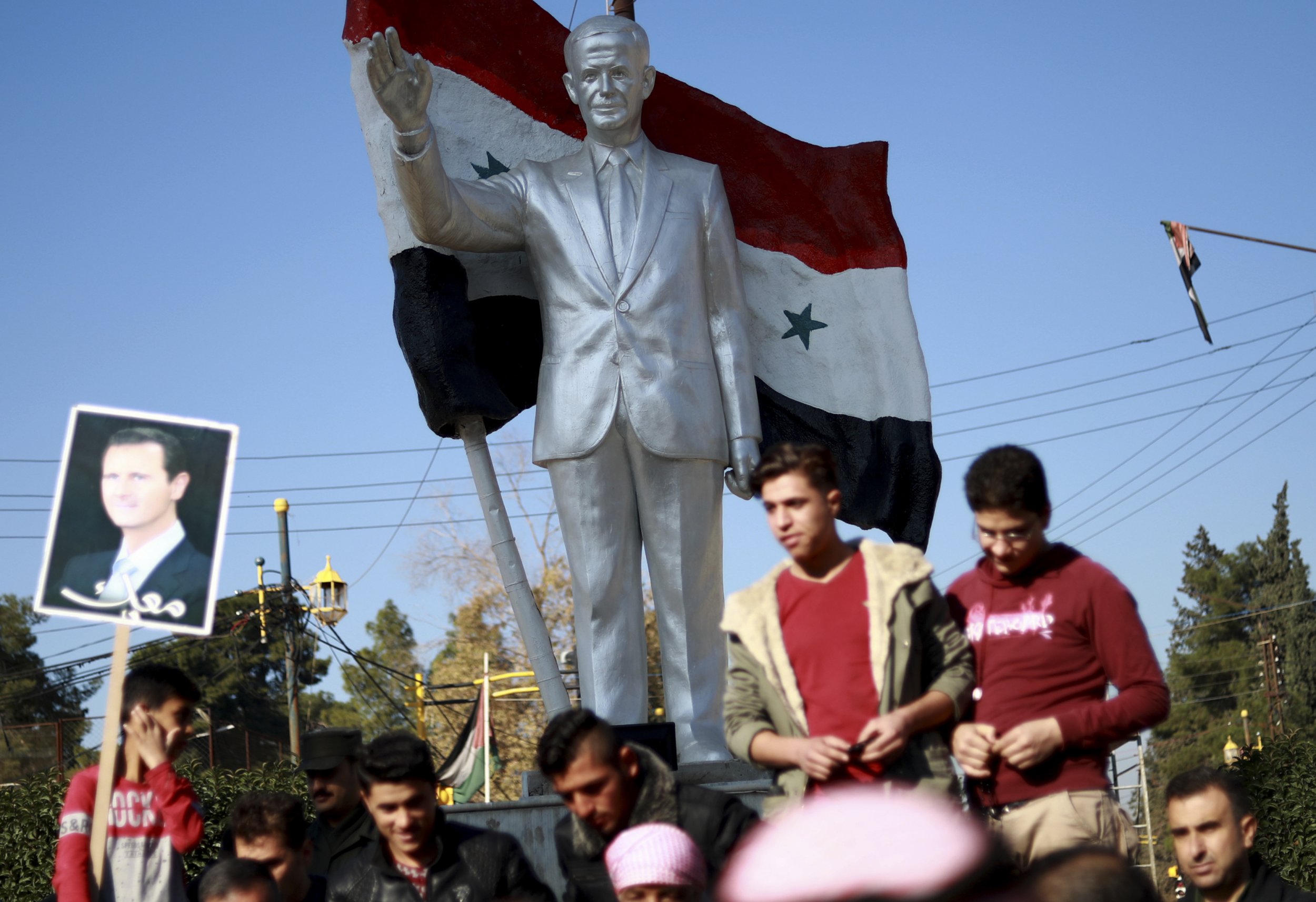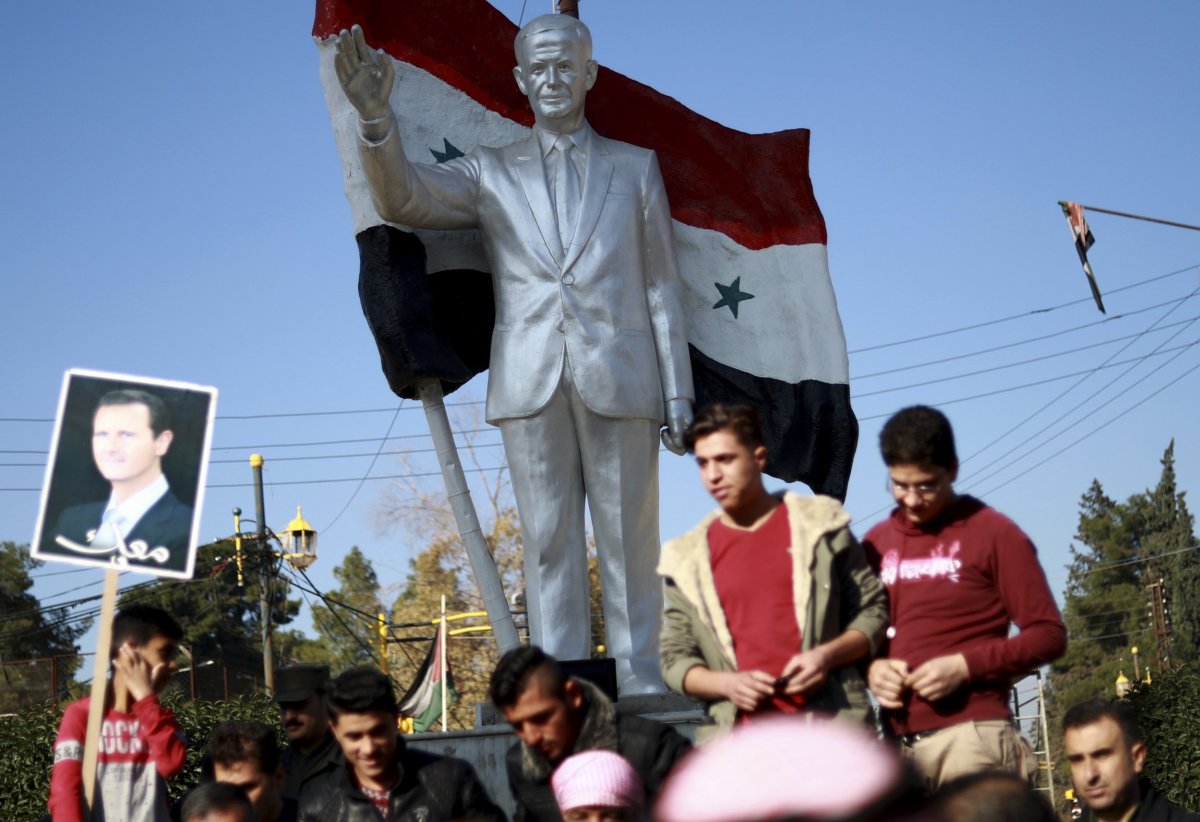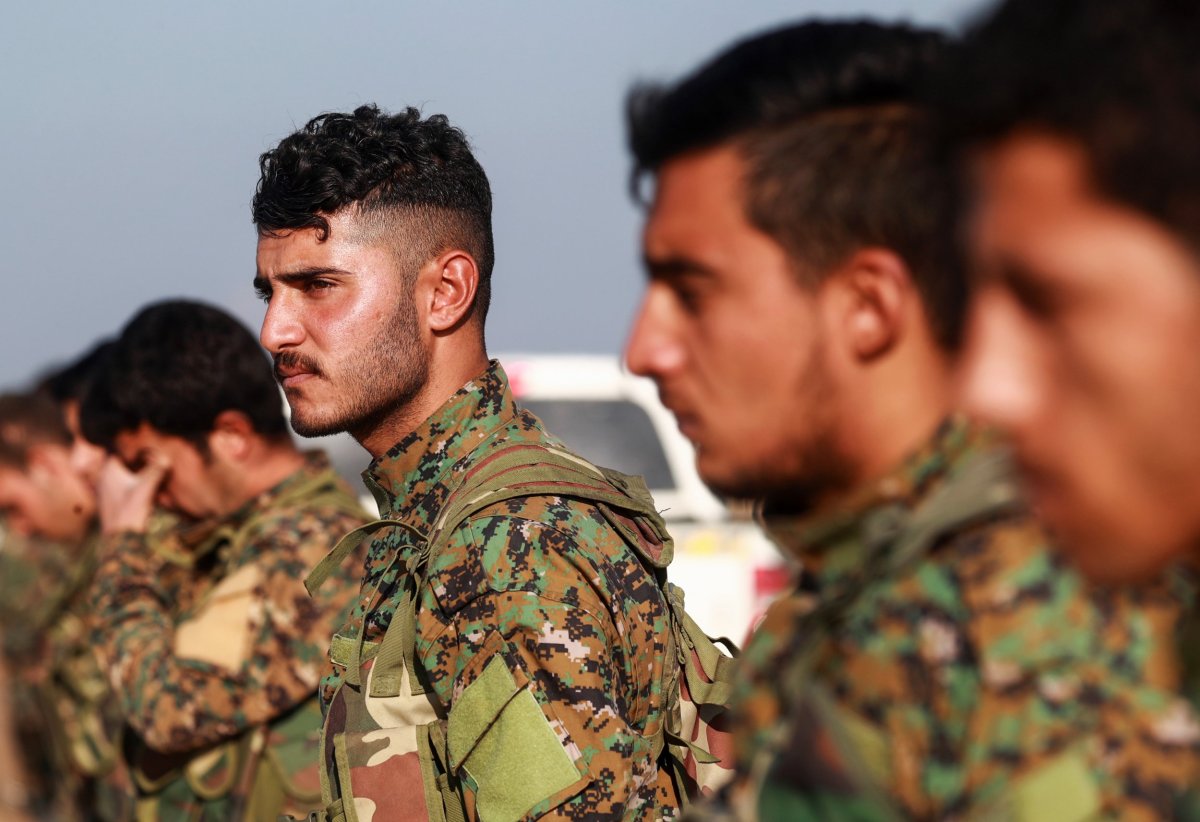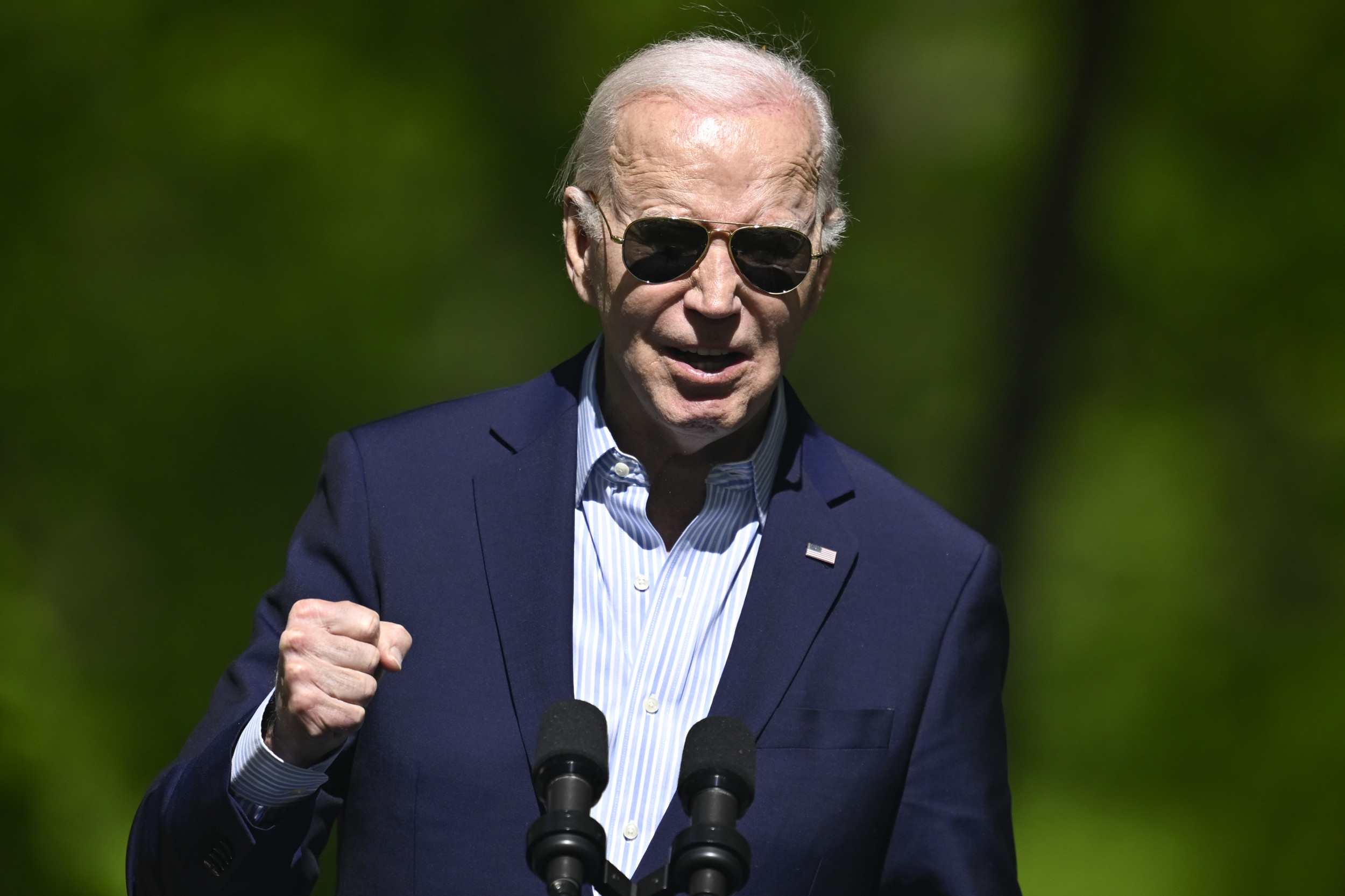
Syrian Kurds allied with the United States in battling the Islamic State militant group (ISIS) have turned toward the Syrian government and its Russian ally for assistance in the wake of a U.S. withdrawal and threats from Turkey.
The Kurdish-led Syrian Democratic Forces have been the leading Pentagon partner in Syria since 2015, a year after the U.S.-led coalition began bombing ISIS, but the impending departure of U.S. troops has left the militia feeling vulnerable to a potential offensive by Turkey, a fellow U.S. ally that views Kurdish separatists as foes. With limited firepower of their own and no regional allies, the Syrian Democratic Forces' political wing recently sent delegations to Damascus and Moscow to negotiate for their protection against Turkey, which also deals with Syrian government allies Russia and Iran.
Syrian Kurdish politician Aldar Xelil told Reuters Thursday that another trip would soon be arranged in hopes of convincing the Syrian government to "fulfill its sovereign duty" by securing the border and blocking any Turkish offensive.
"Our contacts with Russia, and the regime, are to look for clear mechanisms to protect the northern border," Xelil said. "We want Russia to play an important role to achieve stability."

Syria's Baathist government—first led by Assad's father until his death, in 2000—has a history of working with the Kurdistan Workers' Party (PKK), a group considered by Turkey to be a terrorist organization due to a three-decade insurgency at home. The People's Protection Units (YPG), a Kurdish militia that forms a core unit of the Syrian Democratic Forces, is widely seen as an offshoot of the PKK and has sided both with and against the Syrian military at various points since the country was shaken by a 2011 rebel and jihadi uprising.
U.S. backing for the Syrian Democratic Forces has strained relations between Damascus and the YPG, as the Syrian government views both the U.S. and Turkey as occupying powers. Still, Syrian troops and Kurdish fighters have united at times against the common enemy of Turkey and the insurgents it sponsors. This partnership manifested itself during the critical battle of Aleppo two years ago, a government victory that paved the way for Assad to restore control over much of the country. Although limited clashes occurred between rival anti-ISIS campaigns waged by pro-Syrian government fighters and the Syrian Democratic Forces, the two again teamed up in January in the face of Turkey's successful seizure of the northern Aleppo district of Afrin.
The Syrian Democratic Forces again appealed for government help in September as renewed Turkish shelling interrupted an already fierce battle against ISIS in eastern Syria. Just as the Pentagon appeared poised to step in by setting up observation posts on the border, Trump surprised audiences at home and abroad by announcing the withdrawal of the roughly 2,000 U.S. troops in Syria following a telephone call with Turkish President Recep Tayyip Erdoğan, as Newsweek reported.
The Syrian Democratic Forces immediately described the move as a "stab in the back" and scrambled to restart a local dialogue that had stalled due to the Syrian government's opposition to granting Kurdish autonomy. Even though deals to hand over certain territories and facilities to the Syrian government have long been underway, the urge to come up with a comprehensive framework to ensure military cooperation between the Syrian military and self-ruling Syrian Democratic Forces may be expedited due to the threat of an impending Turkish operation.
"The path of the relationship between the self-administration and the authority in Damascus can be characterized by appeasement, confrontation and then, today, negotiations," Sihanouk Dibo, the presidential adviser of the leading Kurdish Democratic Union Party (PYD), said Wednesday in a statement. "The latter is the safest, the most preferable and the best for both. We have to think together about producing a possible agenda; this is the agenda that brings all those in Syria out to victory. Peoples, nationalities, religions of all Syrian cultures."

Assad, however, has vowed to retake all lands outside of his control, and to do so by force if necessary. Russian Foreign Ministry spokesperson Maria Zakharova expressed a degree of skepticism toward the apparent U.S. pullout during Wednesday's press conference in Moscow but maintained that "it should be the Syrian government" that "will assume control of the regions the Americans will vacate."
The U.S. has refused to endorse the Syrian government's rule, accusing Assad of war crimes and demanding a political process to permanently oust him from power. The Trump administration has also condemned the presence of pro-government, mostly Shiite Muslim militias said to be part of Iran's regional network of forces viewed as a threat by the U.S., Israel and Saudi Arabia, which sent $100 million in aid to the Syrian Democratic Forces in August.
Saudi Arabia has sponsored efforts to overthrow Assad. Nevertheless, Riyadh has reportedly joined other regional powers in warming up to the idea of normalizing ties with Damascus, which was expelled from the Arab League at the onset of the civil war in 2011. The United Arab Emirates was said to have been mediating between Saudi Arabia and Syria and, following widespread speculation, revealed Thursday that it was reopening its own embassy in Damascus.
Uncommon Knowledge
Newsweek is committed to challenging conventional wisdom and finding connections in the search for common ground.
Newsweek is committed to challenging conventional wisdom and finding connections in the search for common ground.
About the writer
Based in his hometown of Staten Island, New York City, Tom O'Connor is an award-winning Senior Writer of Foreign Policy ... Read more
To read how Newsweek uses AI as a newsroom tool, Click here.








